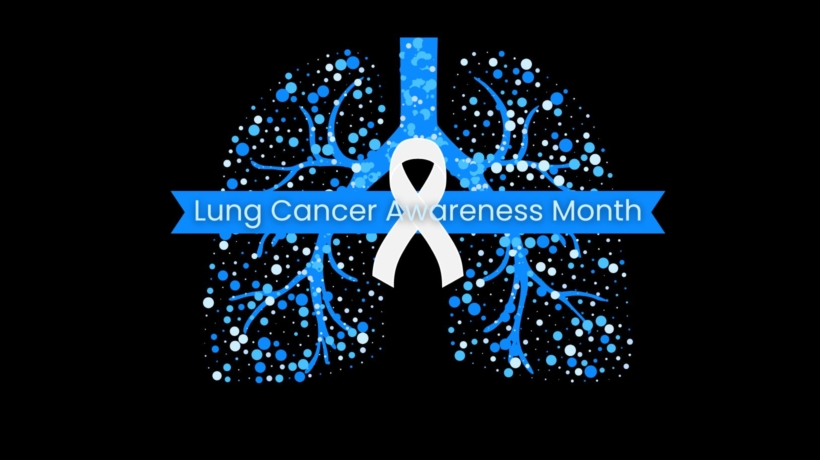Understanding Lung Cancer Awareness Month and the Importance of Early Detection through Low-Dose Lung Cancer Screening

November is Lung Cancer Awareness Month, an important time to raise awareness about the deadliest cancer in the U.S. Lung cancer is often detected too late, but with advances in screening, early detection is possible, improving the chances of survival. At TRA Medical Imaging, we are proud to offer low-dose lung cancer screenings (LDCT) to patients who meet specific criteria, providing a crucial tool in the fight against this disease.
Why Early Detection Matters
Lung cancer is notorious for showing minimal symptoms until it has progressed to an advanced stage. By the time many people are diagnosed, the cancer may have spread, making it harder to treat. Early detection can significantly change this trajectory. Low-dose lung cancer screening is a safe, non-invasive way to catch lung cancer at its earliest stages, when treatment is more effective.
The benefits of early detection include:
- Identifying cancer before symptoms appear
- Providing more treatment options
- Increasing the likelihood of a successful outcome
In fact, studies have shown that LDCT can reduce lung cancer mortality by 20% in high-risk individuals. This makes lung cancer screening one of the most effective tools in saving lives.
What is Low-Dose Lung Cancer Screening?
Low-dose CT (LDCT) is a simple, painless test that uses a lower amount of radiation than a standard CT scan to create detailed images of the lungs. It can detect abnormal spots or nodules that might be lung cancer, often long before symptoms arise. The scan itself takes less than 10 minutes, and the radiation dose is about one-fifth of that used in a regular CT scan.
Do You Qualify for Low-Dose Lung Cancer Screening?
Low-dose lung cancer screening is recommended for individuals at higher risk for lung cancer. You may qualify for the exam if you meet the following criteria:
- You are 55 to 77 years old (some guidelines may include ages up to 80)
- You have a 30-pack-year smoking history (this means 1 pack a day for 30 years or 2 packs a day for 15 years)
- You are a current smoker or have quit within the last 15 years
- You have no symptoms of lung cancer, such as persistent coughing or unexplained weight loss
If you meet these guidelines, LDCT screening may be right for you. However, it’s important to talk to your healthcare provider to determine whether you’re eligible and to get a referral for the screening.
How the Screening Process Works
Many people are unsure about what to expect from a lung cancer screening. Here’s a step-by-step breakdown to ease any concerns:
- Consultation with Your Doctor: Start by discussing your health history and risk factors with your healthcare provider. If you qualify, they will refer you for the screening.
- Scheduling the Exam: Once you have a referral, you can schedule your screening at TRA Medical Imaging. We offer LDCT exams at several of our convenient locations throughout the South Puget Sound region, so you won’t have to travel far to get tested.
- The Screening: The LDCT exam is quick and painless. You’ll lie on a table, and the CT scanner will rotate around you, capturing images of your lungs. There are no injections, dyes, or special preparation required.
- Getting Your Results: After the exam, a board-certified radiologist will interpret the images and share the results with your healthcare provider. If anything abnormal is detected, your doctor will discuss next steps, which may include further testing or a referral to a specialist.
What Happens After the Screening?
If your LDCT screening comes back normal, your doctor will likely recommend that you continue annual screenings, as long as you meet the eligibility criteria. Lung cancer is more easily treated when found early, so regular screenings are key.
If the scan detects something suspicious, don’t panic. Most lung nodules found through LDCT are benign (non-cancerous). Your healthcare provider may suggest additional tests or scans to monitor the nodule over time or to determine if further action is needed.
Take the First Step: Talk to Your Healthcare Provider Today
Lung cancer is a serious disease, but early detection through low-dose lung cancer screening can save lives. If you are at high risk, it’s important to be proactive about your health. Talk to your healthcare provider today to see if you qualify for a low-dose lung cancer screening exam at TRA Medical Imaging. Our team is here to guide you through the process and ensure you receive the care you need.
Together, we can fight lung cancer and increase the odds of survival through early detection.
Locations for Lung Cancer Screening at TRA Medical Imaging:
For more information on low-dose lung cancer screening, visit our LDCT web page. Remember, early detection is key, and it starts with a simple conversation with your doctor.
